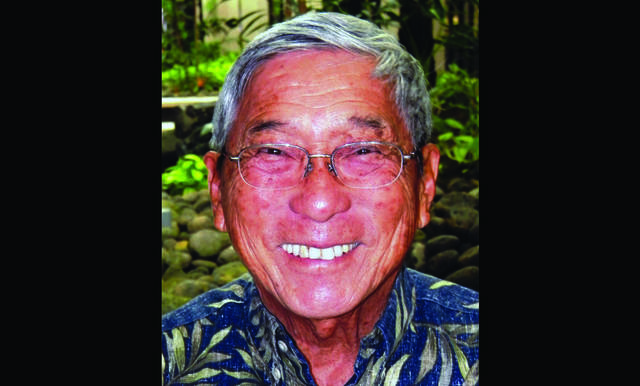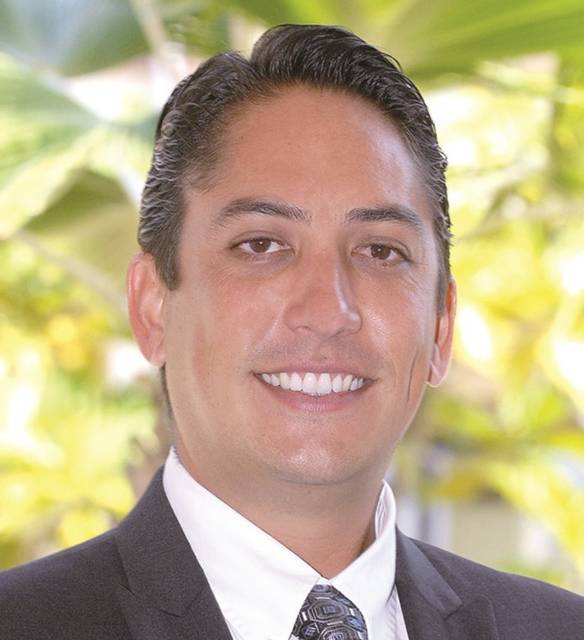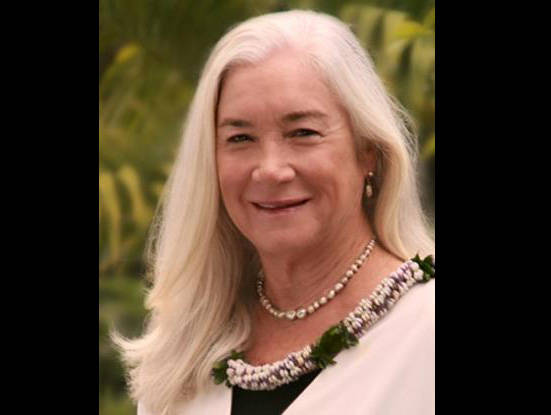Vacation rental bill on hold, again
KAILUA-KONA — A bill to regulate short-term rentals on Hawaii Island will get another go before the Hawaii County Planning Committee after more amendments were proposed on Tuesday.
KAILUA-KONA — A bill to regulate short-term rentals on Hawaii Island will get another go before the Hawaii County Planning Committee after more amendments were proposed on Tuesday.
The committee, comprised of County Council members, met Tuesday to mull proposed changes by Hilo Councilwoman Susan Lee Loy that were heard during last month’s committee meeting held May 8. They also heard testimony from eight people who were mostly in support of the measure.
Lee Loy’s amendments include a requirement that a new owner notify the county of a change in ownership, though the registration as a short-term rental will continue until terminated; reference to existing county laws regarding signage in the county right of way; and clarification to wordage, including changing a “designated contact” to a “reachable person.”
“We tried to find some very refined, consistent language so that anyone entering into this short-term vacation rental understood what they were getting into and what the parameters were,” Lee Loy said during the meeting.
Kona Councilwoman Karen Eoff commended Lee Loy’s work, adding that the “committee is honing in on some good refinements” thanks to public input.
“We heard a lot of really great comments and great ways to improve the bill,” said Kona Councilman Dru Kanuha, who co-introduced the bill with Eoff. “It’s going to be a long process (and) we’re going to be going through that process with the community and please don’t stop giving us good information to make this bill better.”
The committee then voted 9-0 to amend the measure.
Bill 108, now on its third draft, applies only to unhosted, short-term or vacation rentals where the owner does not live on site. Hosted rentals, such as bed and breakfasts and home-sharing units, are not addressed in the bill.
The measure is an attempt to prohibit unhosted short-term rentals in residential and agricultural zones, while allowing them in hotel and resort zones as well as commercial districts. Existing rentals in disallowed areas would be able to apply for a nonconforming use certificate that must be renewed annually at a cost of $500.
After voting on the bill, the committee took up discussion on additional amendments proposed by Puna Councilwoman Eileen O’Hara. However, because O’Hara’s communication seeking consideration of the changes was submitted late and therefore not included in Tuesday’s meeting agenda, the committee was unable to vote on the matter.
Among the changes she proposed are requiring verification of notification letters sent to all property owners within 500 feet of any short-term rental upon submitting registration; terminating registration upon change of ownership; and requiring a $100 annual fee for short-term rentals in hotel and resort zones as well as commercial districts.
“It’s really important that we keep accurate records here at the county,” said O’Hara about the need for registering all short-term rentals. “And the magnitude of the disaster in Puna right now is making us well aware of that — not knowing where our visitor population is at any given time.”
In addition, O’Hara’s proposed amendments call for lowering the annual $500 fee for the nonconforming use permit to a scaled program based on the amount of transient accommodations tax paid during the prior year. For example, a short-term rental that pays less than $500 in TAT would be charged annual fee of $50 while a short-term rental paying more than $10,000 in TAT would dole out $1,000.
O’Hara estimated that a “good deal” of the nonconforming users would end up paying $100 to $350 annually.
“It’s stepped up to be a more equitable fee,” she said.
Amid discussion on O’Hara’s proposed amendments, Mayor Harry Kim stepped in on the meeting, noting the work that has gone into creating regulations for short-term rentals.
“I appreciate people that have testified before you saying ‘This is my income,’ and nobody wants to take people’s income away, but I cannot let that be a reason why we don’t regulate it, why we just throw up our hands and say no regulations we do what we want with this business,” said Kim.
“And not to get sarcastic about it but to me, it’s no different than saying we would allow stores, service stations or whatever to open up anywhere — it is a business —but this is a little more in a sense that because it infringes on the lifestyle.”
The Planning Committee will take up O’Hara’s proposed amendments at its next meeting slated for June 18 at West Hawaii Civic Center in Kailua-Kona.







What the heck is Eoff still doing working on this bill. She is a CROOK! #ImpeachEoffNOW!
We own a 9.6 acre agricultural lot in South Kona, surrounded by other agricultural land, near the South forest Kona reserve. The subdivision we live in, is an Ag-5, 5-lot agricultural subdivision (Kukui’Opae II). We practice agriculture, we have livestock on our farm and we have 5 acres enrolled in the Native Forest Dedication with Hawaii County and are actively working with USDA-NRCS in a conservation reforestation project. We have lived here since 2002, and over the last 10+ years, several of the neighbors in this subdivision are renting out houses, studios, and other structures via AirBnB, VRBO and other services. These commercial activities have led to increased use of our small easement access, and harassment from the renters of these structures. Complaints from renters about the noise of the poultry and sheep on the advertising websites, renters trespassing and verbally confronting us about the farm and the animals, etc. Although some of the owners advertise as Eco-tourism and Farm-tourism, none of these renters have ever helped out on these properties or have “explored” the grounds.
Several of the neighboring lots to the north are practicing coffee farms, and in our area are also wild herds of mouflon, various pheasants and other wild birds, feral pigs and cattle. None of these coffee farms are fenced in. The coffee farms in our subdivision are merely “gentlemen” coffee farms, and the wild animals easily travel across them. These lot owners also take pride in planting ornamental shrubs and trees that are on the State and CTAHR invasive species lists. Our farm is completely fenced in according to USDA-NRCS standards for livestock, and our gate is always closed and locked-unless we expect the rare visitor.
We are pleading with you for your help in protecting true agricultural land, and protecting working farms and agricultural land from commercial vacation rentals, transient accommodations and other non-agricultural commercial activities of agricultural land, so that we can protect our own agricultural lands, farm practices and food security. One of the means you can do that is to stop vacation rentals and transient accommodation facilities on agricultural land, whether they are new or old businesses. Please do not allow these old facilities to become grandfathered in.
Airbnb has set up this fantastic airbnb citizen link to allow us to send our concerns all at one time to the appropriate council members. How can the regular citizen compete with such big corporate support to protect our peace and tranquility where we live.